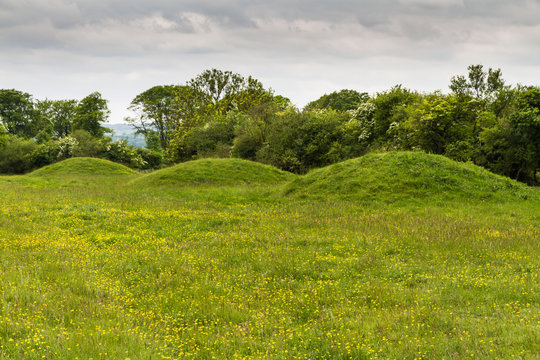Islay

Islay [Is-lay]
"People of the Boneheart"
The Islay and the Daranaigh
are said to have
descended from
2
brothers
in ancient folklore,
and
have been seen as cousins ever since.
Although the
Daranaigh are less battle driven then the Islay, one will always support the
other in and out of politics and combat.
Society was traditionally made up of kin groups known as clans, each with its
own territory and headed by a male chieftain. The Islay has always had a strong
oral tradition, maintained by bard and minstrels.
Succession law had unique traits, as the eldest son inherited
the father's main residence, while the rest of the property was shared among
siblings, daughters inheriting half as much as sons. Those there farm and raise
different livestock from sheep to cattle.
Most
folklore consists of stories of the births, early lives and training, wooings,
battles, feastings and deaths of the heroes and reflects a warrior society in
which warfare consists mainly of single combats and wealth is measured mainly in
cattle.
The Islay are one of the oldest provinces and peoples in the Holy Camarian
Empire. Having had their own distinct language and culture for over a millennia
before they were annexed into the Empire. Sympathetic to the southern Imperial Royalian
Empire, Islay was conquered in the year 1550 Evinco by King Valentlin the
Conqueror who was known for his military campaigns and annexing of the Daranigh,
Islay and Esunians. Valentiln believed the Islay were harboring Royalian
sympathizers and spies in its borders
while
trading with the south lands,
which was
illegal under the Camarian Empire's edicts.
A rebellious people, the Islay never gave up on their freedom and consequently were never given Full Citizenship (Rights) in the Empire. The Islay cannot be military or government officials across the Empire. If an Islay woman is married by a Gaelian she must give up all ties to her clan, language and culture and her children must be brought up Gaelian.
First Night
The first night is a marriage tradition in Islay brought in by the Gaelians, a tradition that is now extinct outside of Islay. Under this tradition, when commoners or peasants marry, their lord or king might bed the bride on the first night. This tradition sometimes even allows kings to bed the wives of nobles on their wedding night, although the tradition is more largely followed by petty nobles against the common.
The harsh treatment by their foreign oppressors has sparked hundreds of rebellions which have been brutally put down time and time again.
Most locations of the rebellions are often
marked by 'Blood Trees.'
Blood Trees,
for this reason, are revered by the Islay who consider them to be grave markers
of the Honored Dead. The origin of the trees is unknown and has been thought of
as Fiendish in nature by some outside sources. They are a majorly contested
issue between the Islay and the Gaelians who rule them, as the Gaelians see them
as Demonic. For this reason, Blood Trees have been cut down and destroyed in the
past sparking further unrest as the Islay hold these plants as a sacred symbol
of their centuries of oppression

This was the Fields of Spionnadh. This battle is the most significant to the Islay and Shyr'Vaero both. The Battle of Spionnadh in the Fields of Spionnadh, Rhys Merden and Casnar Merden brothers and long descendents of Kennard Quele, the son of the Conqueror Valentiln Quele were involved.
In 3287 Spiritus, Rhys Merden who sided with the Islay, in a final act to take
their freedom lead two thousand Islay men and women and two hundred Gaelians
onto these fields. Their enemy was only two hundred and fifty strong, but they
were Knights Casnar had purchased from Gaelia and musketmen of the Bel'an.
"The battle turned bad, those clan leaders that still lived
tried to create a diversion to get Rhys out and split into two groups fleeing.
Casnar who had lead his men into battle as Rhys had his own led the charge
against the fleeing Islay, giving quarter to only fifteen Gaelians he found in
pursuit of the enemy. The loss of life for the Islay was estimated between
fifteen hundred and the two thousand that had arrived to fight. And those who
did not die were taken prisoner. And of Casnar's troops? Eighty dead and a one
hundred and thirty wounded. I do not know in detail the repercussions and
persecution of the Islay after the battle but I do know is that any and all
supporters of the rebellion were hunted down and gold prices put upon their
heads. That their livestock was stolen and sold and any possible sympathizers
were executed by musket. Rhys was found and he along with at least eight clan
leaders were taken to stand trial for treason.
These are the mass graves of the Islay, men and women and even children who only
in kilts and shirt ran these fields with axes and rusted swords against armored
men on horseback and men who fired muskets, knowing that they would lose but
would rather death then servitude to greedy and powerful men. These are the
people of Shyr'Vaero and this once battlefield and now mass graveyard is his
most sacred place in Camar'a, because he will never let their memory truly die.
_______________________
Additional Traits:
The God of Battle has personally fought beside your people. You are a favorite of War itself, with a fire in your heart that can only be quenched by warm blood on your hands and blade. Whenever you make an attack that reduces a foe to 0 hit points or fewer or you confirm a critical hit, your attack deals 1 additional point of damage. The additional damage is a trait bonus, and is multiplied by your weapon's critical hit multiplier.
All Original names and references to the story they are from are Copyright of Nathanial Davidson.